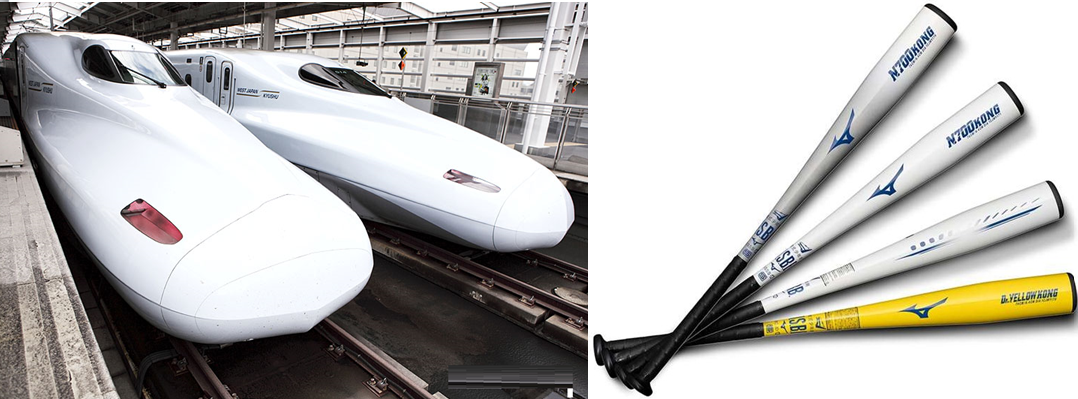您想继续阅读英文文章还
是切换到中文?
是切换到中文?

THINK ALUMINIUM THINK AL CIRCLE

Japan's out-of-service or retired bullet trains have been repurposed and recycled into baseball bats for children. Central Japan Railways (JR Central) and specialist sports retailer Mizuno joined forces to revolutionize the Shinkansen N700 bullet trains. These trains had been catering to thousands of passengers on Japan's renowned Tokaido Shinkansen high-speed railway line.

N700 series trains have a maximum speed of 300 km/h (186 mph), and tilting of up to one degree allows the trains to maintain 270 km/h (168 mph), even on 2,500 m (8,202 ft) radius curves that previously had a maximum speed of 255 km/h (158 mph).
JR Tokai, a subsidiary of JR Central, has recently introduced an innovative recycling technology that transforms metal into a unique product known as "Tokaido Shinkansen recycled aluminium." The railway company stated, "Because it is a high-strength recycled aluminium material used in Shinkansen trains, it can be used not only for decoration but also for building materials and precision machinery."
JR Central states that their recycling technology exclusively extracts high-purity aluminium alloys by eliminating deposits from the aluminium utilized in Shinkansen trains. The Tokaido Shinkansen's recycled aluminium requires less energy during manufacturing and results in lower emissions compared to the production of new aluminium.
Mizuno said, “This is Mizuno’s first ever aluminium recycled bat. It was considered technically difficult to make a bat with recycled aluminium. Still, we were able to commercialize Tokaido Shinkansen recycled aluminium by adjusting the ingredients to make it a material suitable for bats, where about 95 per cent of Tokaido Shinkansen recycled aluminium is used.”
Peering into the future, JR Central, a renowned railway company which continues to retire approximately six bullet trains annually, said, “We collaborate with companies other than group companies to expand the use of Tokaido Shinkansen recycled aluminium and material recycling.”
Responses








